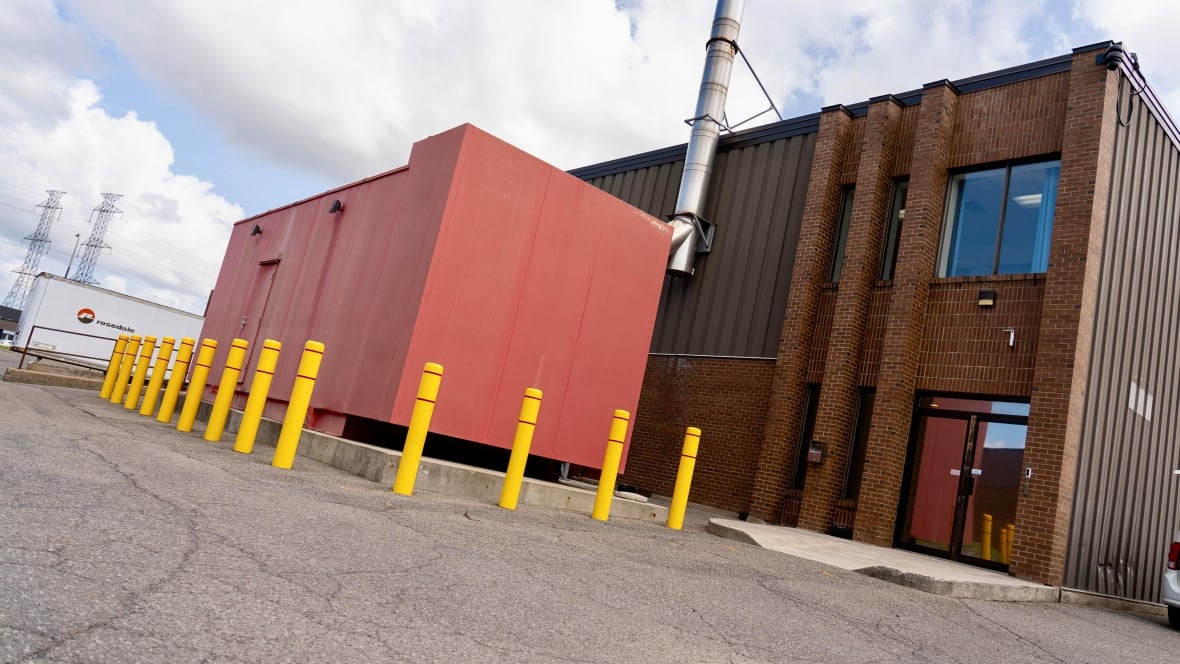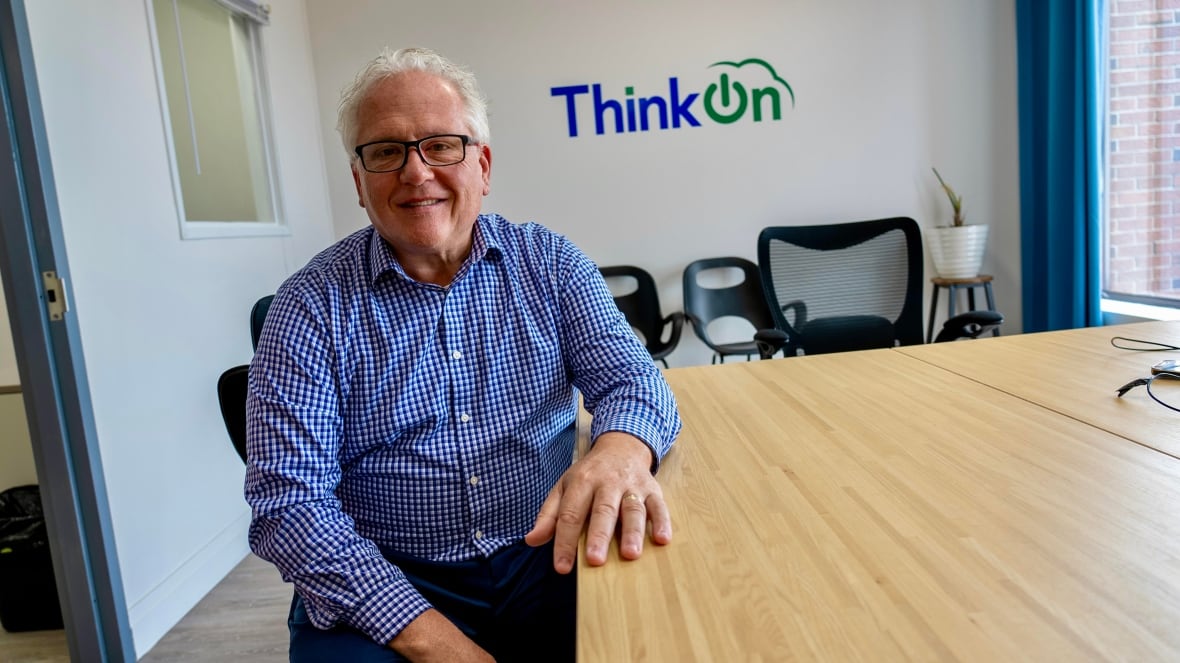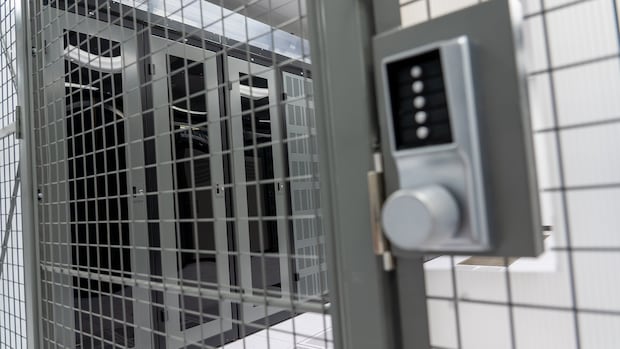Canadian companies racing to build sovereign, energy efficient data centres
Toronto-based ThinkOn owns and operates data centres around the world including 11 in Ottawa
While tech giants like Microsoft, Google and Amazon own the lion's share of the world's data centres — places which store digital information and power artificial intelligence — several Canadian companies are quietly working to get a foothold in the market.
It's an endeavour that has become increasingly important as much of Canada's data is stored on foreign-owned servers.
Toronto-based data storage and cloud company, ThinkOn, is the only Canadian company that meets the federal government's security requirements to house federal servers and to upload federal data into a cloud the company owns and operates.
"We need to foster more domestic competitors as opposed to just having a bunch of American companies come to Canada," - ThinkOn CEO Craig McLellan
"There should be more of us, frankly," McLellan said from inside his company's data centre in the Ottawa suburb of Nepean. "It's an important and competitive issue for Canada. We need to foster more domestic competitors as opposed to just having a bunch of American companies come to Canada," he said.
ThinkOn, a company that employs 185 people and generates $70 million in annual revenue, owns data centres around the world, including 11 in Canada. CBC News toured one of the storage rooms at the company's Ottawa data centre, where it hosts 1,500 servers for both the private and public sector.
According to Phil Harris, the CEO of the Ottawa-based AI infrastructure company, Cerio, there are roughly 300 data centres across Canada. Nearly half of them are what he calls hyperscalers — huge cloud service providers run by firms like Amazon, Google and Microsoft.

Boosting investment key to growing industry
Harris and McLellan, who have both met Minister of Artificial Intelligence Evan Solomon, say Canada needs to act quickly to secure itself in the market. McLellan points to the American Clarifying Lawful Overseas Use of Data or CLOUD act, which passed in 2018.
"[The act] allows the government in the US and law enforcement three-letter agencies to demand the release of data from American companies operating in other countries," said McLellan.
It's the reason McLellan is so focused on Canadian-owned cloud services and made-in-Canada innovation in the AI sector.

The federal government is on board. In the 2024 budget the government earmarked $2 billion over five years for AI compute — the technology that powers AI.
"Canada can't afford to be a customer in the digital economy — we need to be a builder," the federal government's new Ministry of Artificial Intelligence said in a statement to CBC.
We're playing catch up and when you're playing catch up you need to move fast.- Phil Harris, CEO of Toronto-based Cerio
It continued: "We will gain ground by leveraging our strengths: abundant clean energy, strong privacy frameworks, and a focus on sovereign cloud solutions for the public sector, regulated industries, and critical infrastructure."

Reimagining more energy efficient data centres
Another outstanding issue is how Canada will power the growing number of data centres in the long term.
Cerio's Phil Harris explains that a mid-sized data centre like the one ThinkOn operates in Ottawa uses the equivalent electricity of 10,000 residential homes. And a lot of that power is necessary to cool the data centre. ThinkOn's operation in Ottawa is now working to taking the facility off Ontario's power grid. The facility will soon run on natural gas, using cogeneration.
That's good, but not the only solution. Part of the problem is that the data centre model is outdated, Harris said. "Inside the industry we kind of do the same thing over and over again ... We're building data centres that are for the 21st century on a 20th century model," he said.
Harris works with companies like ThinkOn to be more sustainable.
"I don't mean by that sort of bricks and mortar side of building it, but how we assemble the technology within that data centre to be incredibly more efficient," said Harris, who says Canada is playing catch up in the data storage and artificial intelligence sector.
"We need to move fast," he said. "We need to partner deeply to get private investment and public investment to solve these problems. It's not just one side or the other. We're playing catch up and when you're playing catch up you need to move fast."



